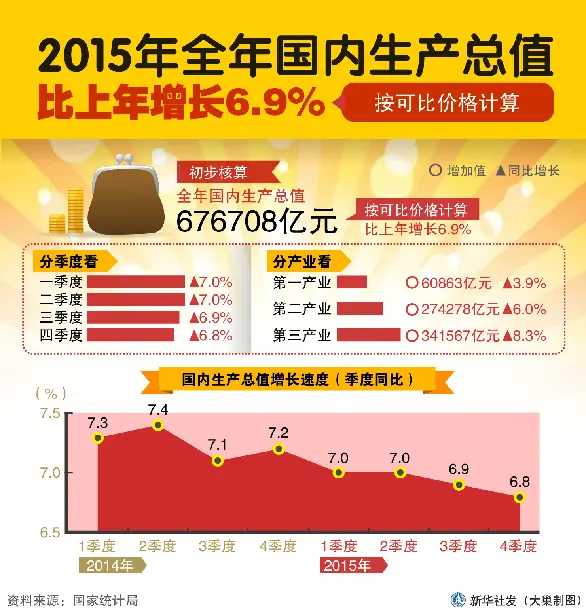Mongolian President Khaltmaa Battulga is set to lead a delegation to attend the third Eastern Economic Forum (EEF) at the eastern Russian city of Vladivostok on Wednesday and Thursday. This will be the newly elected president's maiden trip abroad and also the first time for him to participate in economic matters internationally, and is seen as clearly related to his diplomatic mission to promote economic cooperation.
Battulga outlined in his election manifesto in June that for the sake of its economic freedom, independence and development, Mongolia would need to pay special attention to mutually beneficial economic cooperation, both at a regional and international level, to expand its market for homemade goods and its development of knowledge products. Out of the 12 foreign policies proposed on his election platform, five related directly to economic development, making the country's economy a clear priority.
At the same time, Mongolia's foreign policy places relations with China and Russia, and participation in regional economic integration, above all other matters. Battulga's trip to Russia allows him to put these ideas into practice.
The EEF, a regional forum for investment and commerce initiated by Russian President Vladimir Putin, aims to strengthen international economic cooperation in far eastern Russia, and attract investment from northeast Asian governments and companies in particular. The past two forums were attended by large business delegations from China, Japan and South Korea. Thus at the EEF, Mongolia hopes to develop exchanges with its two neighbors - China and Russia, and also with its two important "third neighbors" - Japan and South Korea.
In 2015, China, Russia, South Korea and Japan were Mongolia's first, second, fourth and fifth largest trading partner respectively. Their aggregate trade volume with Mongolia accounted for more than 80 percent of the country's total. Through this forum, Mongolia can interact with more than one important trade partner to promote its own participation in regional economic integration in Northeast Asia. Therefore, Battulga takes attending the EEF as an important opportunity to practice the diplomatic thinking of "economic priority" and implement his election platform.
Another important thrust for Battulga's first visit to Russia is to develop trade between the two countries' economies. The Mongolian president's foreign policy advisor Purevsuren Lundeg said in a recent interview that the country wanted to make the development of balanced and equal bilateral relations with China and Russia a priority, especially since current economic and trade relations with the two countries appeared unbalanced. To address this problem, one of Battulga's short-term ambitions was to enhance the level of Mongolian-Russian economic and trade cooperation to match levels currently enjoyed between Mongolia and China.
Although the Intergovernmental Committee meeting on Trade, Economy, Science and Technical Collaboration between Mongolia and Russia has been operating from as early as 1991, it has not played a significant role in promoting their economic and investment cooperation.
Levels of Russian investment in Mongolia's foreign trade have dropped from 80 percent in 1990 year-on-year to just 13 percent in 2015, while Mongolia's trade deficit with Russia has increased year-on-year. The trade deficit in 2013 reached $1.5 billion, accounting for 71.8 percent of Mongolia's total trade deficit. In addition, Mongolia has been concerned about the export of meat products to Russia, especially to the Siberian market, which has failed to make substantial progress.
By contrast, Sino-Mongolian trade volume has been growing steadily. Sino-Mongolian trade volumes accounted for 60 percent of Mongolia's total foreign trade in 2016 and Mongolia has always maintained a large surplus with China. In this context, Battulga is eager to improve economic ties between Mongolia and Russia.
On the one hand, Mongolia is keen to exploit the potential for bilateral economic cooperation to enhance trade with neighboring countries. On the other hand, Mongolia also wants to avoid excessive economic dependence on an individual country to achieve trade balance between Mongolia and its neighbors to the north and south. In this respect, the president's visit to Russia demonstrates Mongolia's determination and willingness to expand its trade links with the outside world.
We should not over-interpret whether Battulga's choice of Russia as his first port of call as president implies some bias. China is Mongolia's largest trading partner and an important investment partner. The development of friendly relations with China has long been an important factor in Mongolia's security and foreign policies. At the same time, we should not resort to zero-sum thinking. Sino-Russian relations have never been more positive and improving economic and trade cooperation levels between Mongolia and Russia to develop their closer relations will provide fertile conditions for the three countries to jointly develop the proposed China-Mongolia-Russia Economic Corridor.
By Li Chao, The author is a junior research fellow from the Russia and Mongolia Research Institute at Inner Mongolia Academy of Social Science.
This article
is adapted from Global times, and is not what APD stands for.
(GLOBAL TIMES)
 简体中文
简体中文

